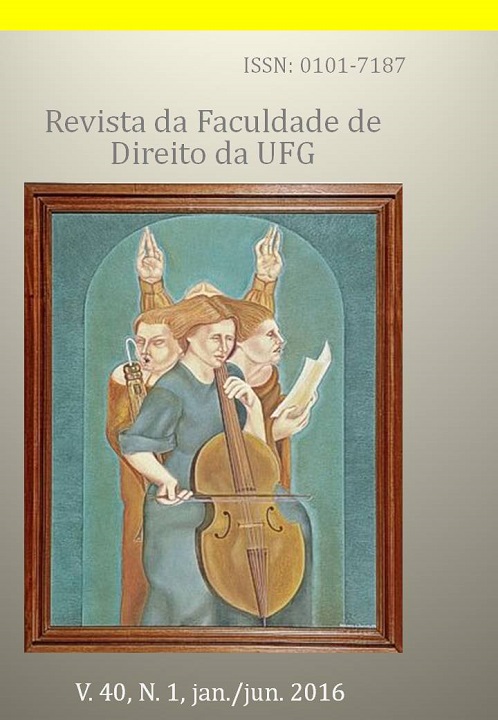POR QUEM DOBRAM OS SINOS? REFLEXÕES SOBRE NEOCONSTITUCIONALISMO E CIÊNCIA JURÍDICA - DOI: http://dx.doi.org/10.5216/rfd.v39i1.22010
DOI :
https://doi.org/10.5216/rfd.v40i1.22010Mots-clés :
constitucionalismo, Estado de Direito, Estado-NaçãoRésumé
RESUMO:
O século XX acarretou transformações decisivas do Estado de Direito que levam ao início de uma nova fase no desenvolvimento do constitucionalismo. Este trabalho pretende oferecer uma aproximação com o Estado Constitucional de Direito, que veio a superar o Estado Legislativo de Direito, formado sob aos auspícios do positivismo legalista. A irrupção do constitucionalismo contemporâneo – que implica a consagração definitiva da supremacia da Constituição como verdadeira norma jurídica – no entanto, exige desafios importantes que se relacionam, diretamente, com a nova era da interdependência e a crescente perda do protagonismo do Estado-Nação. Isso comporta a necessidade de superar a velha dogmática jurídica estatalista para transcender os constritos limites espaciais do modelo estatal e promover garantias jurídicas que assegurem a efetividades dos direitos fundamentais
ABSTRACT:
20th Century has provided weighty changes that entails the beginning of a new period in the development of constitutionalism. This paper aims to offer an approach to constitutional State that has overcome legislative State forged under the domains of legalist positivism. However, the appearance of current constitutionalism –involving the definitive consecration of constitution`s supremacy as a real legal norm-, implies important challenges regarding the State-nation weakness in an interdependence and globalization age. This includes the need to overcome the old dogmatic legal state in order to transcend the constrained geographical limits of the state model and provide legal guarantees to ensure the realization of rights.
Téléchargements
Téléchargements
Publié-e
Comment citer
Numéro
Rubrique
Licence
Les auteurs qui publient dans cette revue accordent à Revista da Faculdade de Direito da UFG une licence mondiale libre de droits, soumise aux termes et conditions de la Creative Commons Attribution 3.0 Brasil Legal License Creative Commons Attribution License
Les auteurs concèdent à RFD UFG tous les droits d'auteur sur les articles qui y sont publiés, qui les conservent en exclusivité jusqu'à l'avènement du domaine public sur ceux-ci.
























